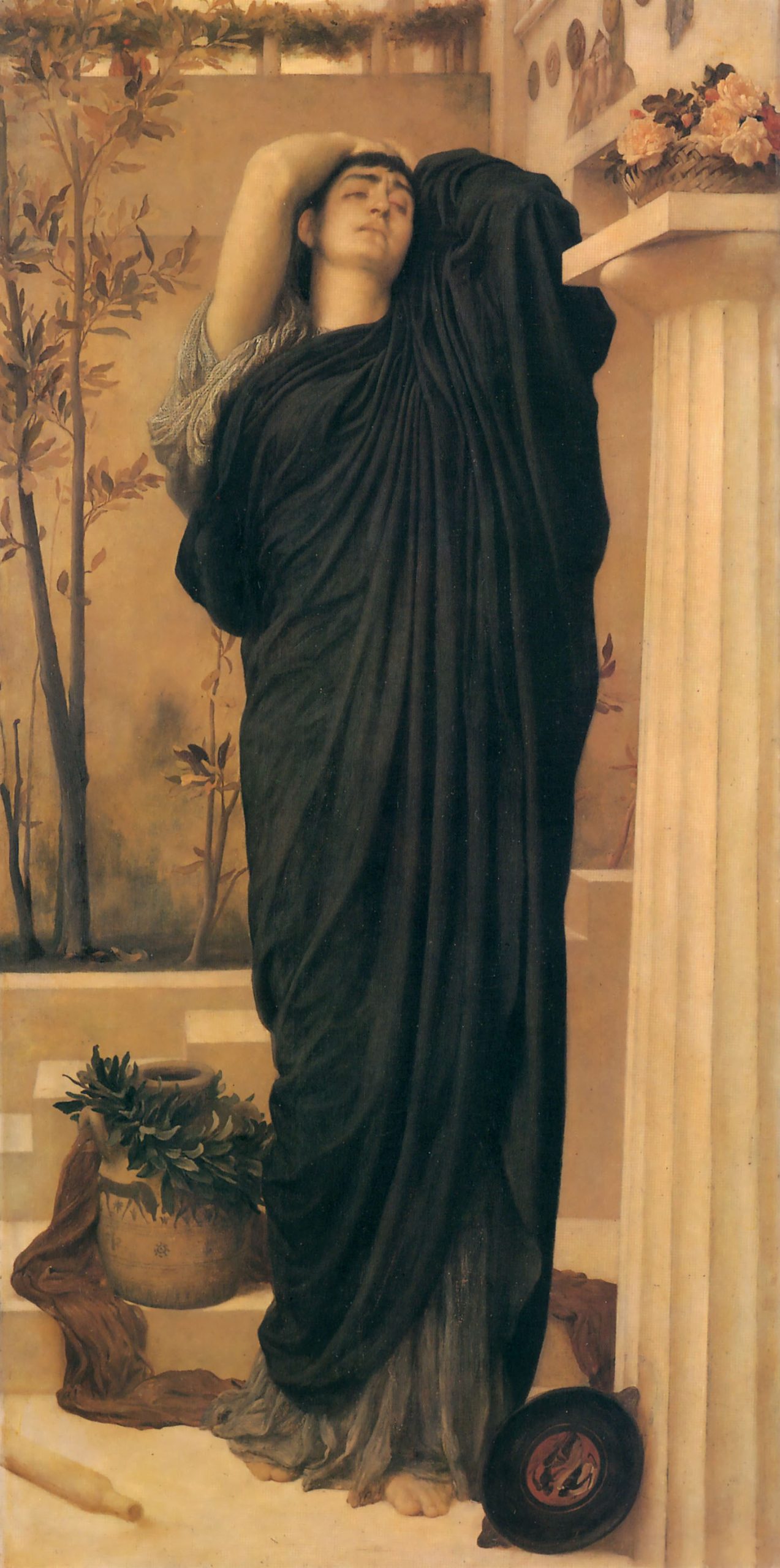Script Suggestions III: Electra by Euripides (Translated by Emily Wilson)

Welcome back to the Script Suggestion Series, where I take the opportunity to abuse my privilege as a theatre critic by getting paid to read and discuss plays from my very own bookshelf. This past summer I read Robert Icke’s Oedipus and was absolutely taken by the powerful adaptation. With that production just about to open on Broadway at the time of writing this article, I’ve been craving some more Greek drama. This hunger drew my attention to a particularly thick spine on my shelf: The Greek Plays, a collection of 16 new translations of ancient Greek plays, all edited by Mary Lefkowitz and James Romm.
With 16 options to choose from, I expected the decision to be difficult but was very quickly able to narrow my options and eventually landed on Electra by Euripides. I came to this for two reasons, the first being that one of the theatre books I’ve had the longest is my mother’s old copy of four Euripides plays, so the playwright has always had a special place in my heart. The second reason: the translator, Emily Wilson. For those of you unfamiliar with Wilson’s work, she is a classicist who completed her studies at both Oxford and Yale, is the department chair of Classical studies at the University of Pennsylvania, and in 2017 became the first woman to translate The Odyssey to English. If all that means nothing to you, she essentially is a classical literature rock star, so I figured that a translation of hers would be quite the read.
Warning: This article contains some spoilers for Electra.
Electra is one of the most compelling myths available in Greek theatre. So compelling, in fact, that we have the pleasure of three major iterations of it. The first comes in Libation Bearers by Aeschylus, then is followed by two plays with the same title; Electra by Sophocles, and Electra by Euripides. The basic breakdown is that prior to the show’s action Clytemnestra conspired with her lover, Aegisthus, to kill her husband the king, Agamemmnon. After his murder, Aegisthus grows worried that the dead king’s heirs might usurp him, so he intends to kill them, however Clytemnestra prevents this by marrying off her daughter, Electra, to a peasant, and by sending her son, Orestes, away. The action of the play begins around Orestes’ return and follows the siblings as they plot to avenge their father’s death by murdering their mother and the new King.
Aside from my sentimental attachment to Euripides, he also sets himself apart from his fellow tragedians due to his focus on psychological complexity and his skepticism towards the very mythology he represents. A view I’ve always aligned with was that around the age of Shakespeare, the fabric of tragedy shifted in the popular theatre. In the age of the Greeks, tragedy was grand in scale, involving characters of legend walking next to the gods, and suffering from unavoidable fate. This began to shift during the renaissance with figures like Hamlet giving birth to a new era of tragedy, one in which average people dealt with internal struggles, often leading to completely avoidable fates. The fascinating thing about Euripides is that he walks a thin line between these two forms, as though he were thousands of years ahead of his time. His stories still deal with these mythic characters, but he invests much of his focus on their inner lives rather than exclusively on the cruelty of destiny.
Wilson’s translation has an intimate understanding of this complexity. Although the events of the play are prophesied by the gods, insights are still offered into the justification behind even minor characters’ machinations. For example, unlike his contemporaries, Euripides chose to portray Clytemnestra as a sympathetic character. Upon reuniting with Electra, Clytemnestra offers the justification behind murdering her husband, explaining that he murdered one of her children and took a prophetess as a concubine: “Should he not die, for murdering my child, / if I must suffer tit for tat, for him?” (Euripides 1044-1045) Yet shortly after this confession of the horrors she suffered through her marriage, Clytemnestra continues “…I’m not too comfortable with what I’ve done. / Those plots and schemes I made! It was too much, / that rage against my husband. I regret it.” (1098-1100) The inner lives of these characters are rich with convolution, making figures who usually are portrayed as distant and mythical become humans living under difficult circumstances.
In the above quotations, there are two important things to note about Wilson’s translated dialogue: first, that it has a slightly more modern feel to it. While ‘tit for tat’ is certainly not a modern phrase, it also is not a phrase I would expect to find in an ancient Greek text. The language is clean, modern enough to not sound immediately dated, while also avoiding too many colloquialisms that it might become irrelevant in a matter of years. The translation has a timeless quality that will ensure it remains relevant for subsequent decades. The second thing to notice is that she went through the additional effort in translation to maintain verse. At first glance, some of the dialogue can seem slightly stale but the miracles verse works for text pacing are all too apparent in the context of a full read. I had expected to tackle reading this piece (as I do with most classical works) in numerous sessions, breaking up the process to conserve energy and brainpower. Sitting down to read this particular translation, the pages raced by. The verse forces readers into a steady pace that keeps the story driving along beautifully.
For true fans of classical theatre, I also feel it worth mentioning how in depth the footnotes were in this script. There are notes on which passages are contested by scholars, they flag any moments that may contain missing or flawed dialogue, even explanations of puns that were made in Greek that could not be properly translated to English are noted. The attention to detail is phenomenal and gives wonderful insight into the amount of work a translation takes.
It feels strange to review a translation of a play, because it’s hard to know exactly what to examine. I personally can’t read Greek and can’t compare the work to its source material except through other translations. I also can’t be sure which creative decisions can be attributed to the translator over the original playwright. Seeing the footnotes, and reading the introduction while engaging with this piece is a welcome reminder of the work that a translator does. They are responsible not only for honouring their own artistic vision and integrity, but are also undertaking the enormous task of doing the original work justice, and honouring that author’s intentions.
Wilson’s translation is a masterclass in this. She has created a script that is accessible, readable, and startlingly human while also committing entirely to an honest representation of the original work. The ancient story still contains some dated ideals, and those are honoured, but Wilson also manages to capture a modern clarity that makes the difficult script worth the read. I am left now unsure whether my appetite for Greek has been sated, or whether this tactful translation has left me hankering to take another off the shelf.
Thanks for reading, and keep an eye out for the next one… my shelf still has a few hundred scripts for us to look at, and while I am not venturing to cross off every title, I hope I can hold your attention for a few more.
Euripides Electra. Translated by Emily Wilson. In The Greek Plays: Sixteen Plays by Aeschylus, Sophocles, and Euripides, edited by Mary Lefkowitz and James Romm. Random House Books, 2016.
If you would like to purchase a copy of ‘Greek Plays’ for yourself, you can find the collection published by Random House Books here.
